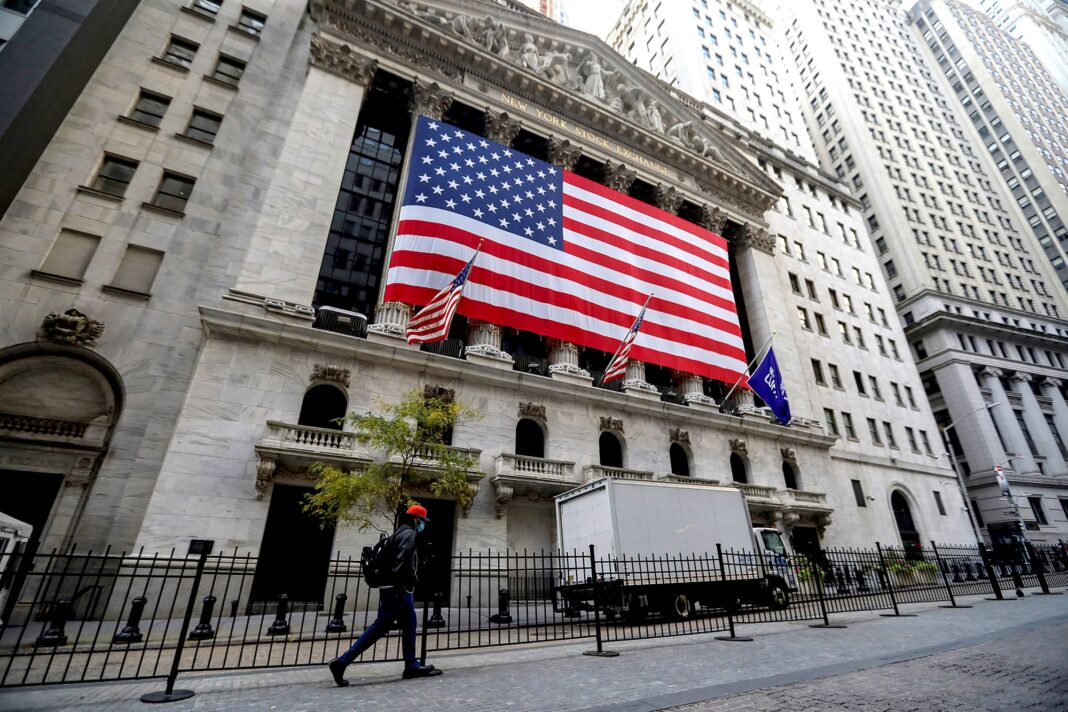Special to the Hellenic News of America
Dr. Michael Papaioannou is a Technical Assistance Expert-Advisor and Visiting Scholar at the International Monetary Fund (IMF) and serves as a Senior Visiting Scholar and Professor at the LeBow College of Business, Drexel University. He has served as a Deputy Division Chief at the Debt and Capital Markets Division of the IMF; a Special Advisor to the Board of the Bank of Greece; and Senior Vice President at the Wharton Econometrics Forecasting Associates. At the end of the night of the recent US presidential elections, in an interview with the Hellenic Broadcasting Corporation (EPA), “First Program,” he discussed some prospective scenarios for the American economy, in the midst of the COVID-19 pandemic and in view of the likely economic program of the 46th president.
The US economy had been in a downturn since February, with GDP (Gross Domestic Product) growth falling at a rate of 5% in the first quarter of 2020, followed by a sharper fall of 31.4% in the second quarter amid the unraveling of the first wave of the Pandemic. Referring to the record growth of 33.1% in the third quarter of 2020, thanks to pent up consumption and slow opening up of businesses, Dr. Papaioannou explained the prospects for the fourth quarter and beyond, amid the ongoing second and third waves of the pandemic and possible new lockdowns. He said “Everything in the economy will depend on how well the spread of the virus is controlled,” and stressed that “if the virus is managed and tamed, then the recovery of the economy will be shorter and a return to some kind of new normalcy will be quicker.”
He further stated, “having now the election process concluded and hoping that the political rivalries that prevailed will subside soon, the President-elect and Congress will have to take urgent measures for the economy to reduce the existing uncertainty in households and businesses and help consumption and investment gradually return to pre-coronavirus levels.” He explained that targeted emergency measures must be designed and implemented for those who have lost their jobs and remain unemployed, thus losing their incomes and consequently being unable to pay for their food and rent and to meet their debt obligations as before. Also, for businesses that have closed and cannot reopen because of the “lingering” pandemic, especially in the catering and tourism sectors (hotels, travel agencies, transportation, etc.), or because of losing their staff, who might have found work elsewhere after their closing down.
In this context, Dr. Papaioannou mentioned that “Several fiscal and monetary measures have already been taken, but more efforts are needed to contain the spread of the virus and develop vaccines, as well as more focused policies should be formulated to combat the economic consequences resulting from the pandemic. Such measures and policies would be instrumental in reducing uncertainty in the population and building up confidence for ensuring the return of the economy to a steady-recovery path. Although no specific assessment of the involved costs has yet been made, cost considerations of measures to prevent the virus from spreading, i.e., relating to expenditures on testing and tracing in positive cases, as well as on vaccines and related school medicines, and of measures to support the unemployed and negatively affected businesses, should at the moment be of secondary importance.”
He then explained the possible scenarios for the US economy under the newly elected president. With Biden’s election, “we should expect a more stable policy to tackle the virus (as opposed to Donald Trump’s ad hoc policy), with the imposition of masks, more respect for social distancing, gradual restarting of schools, and opening up of the economy, that will likely suspend a wider spread of the virus, avoid prolonged negative employment effects, and in general create conditions for a faster recovery in the economy. Also, based on his pre-election campaign, we should expect more financial measures to support the unemployed and businesses, along with higher taxes for incomes in excess of $400,000 to cover the larger public deficits. However, additional tax measures may need to be undertaken to deal with the increased public debt, projected at around $28 trillion, or close to 100% of GDP, at the end of 2020.”
In closing, Dr. Papaioannou stressed that Mr. Biden had also referred during his campaign to the return of the United States to the Paris Agreement on climate and global sustainable development, as well as to the promotion of other international economic and political relations. Of course, these intended policies are all relevant, to be determined by the ever-evolving international environment, relating to economic, financial, and geopolitical developments. Finally, he said, “In terms of the impact of the US policies on the international economy and more so on the European Union, the main concern remains on the trade relations between America and foreign counterparts, with Biden being perceived as more internationalist and tending to find more commonly accepted solutions.”









